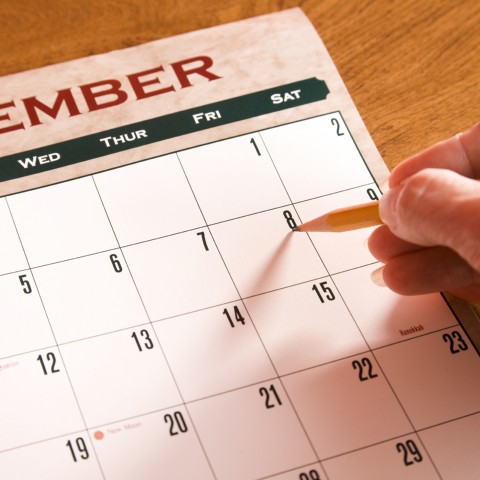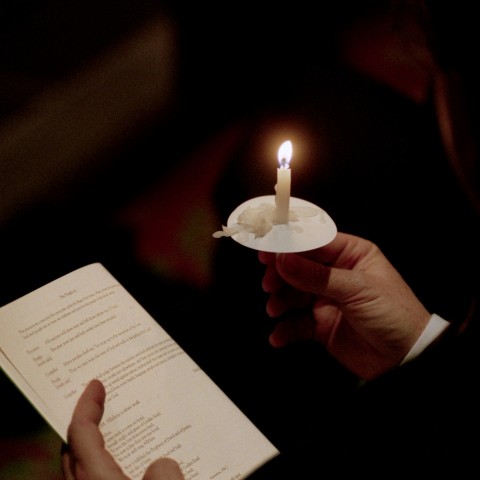If you know our history, you should know that France is a secular country. In 1905, a law was created to separate the Church from the State. Still, many public holidays and traditions in France have Catholic origins. And one of the most important Catholic holidays is Easter.
Is Easter Monday a bank holiday in France? Yes! Easter in France, for kids especially, is a great joy!
In this lesson, we’re going to teach you how French people celebrate Easter. At FrenchPod101.com, we hope to make learning about French culture both fun and informative!
1. What is Easter Monday in France?
Originally, Easter commemorated the resurrection of Jesus Christ and marked the end of Lent for Catholics. Lent is a period of fasting that lasts forty days, referencing the forty-day fast that Jesus Christ did in the desert. The Monday following this Sunday is a public holiday called Lundi de Pâques. Many French people celebrate this holiday, even if they’re not Catholic or religious.
2. When is Easter Celebrated in France?
The date of Easter Monday (the Monday after Easter) in France varies from year to year. For your convenience, here’s a list of this holiday’s date for the next ten years:
- 2019: April 22
- 2020: April 13
- 2021: April 5
- 2022: April 18
- 2023: April 10
- 2024: April 1
- 2025: April 21
- 2026: April 6
- 2027: March 29
- 2028: April 17
3. Reading Practice: Easter Celebrations in France
How is Easter Monday celebrated in France? Read the French text below to find out (and find the English translation directly below it).
—
Les Français fêtent Pâques en famille. Le dimanche, les adultes cachent des œufs dans le jardin ou la maison, et les enfants doivent les chercher. Ce sont de vrais œufs de poule, vidés et décorés, ou alors ils sont en chocolat. Traditionnellement, on offrait des œufs à Pâques car, durant le Carême, on ne pouvait en manger. Mais les poules continuaient à pondre des œufs ! Une fois le Carême passé, on offrait alors ses œufs en trop à ses amis, ses voisins… Aujourd’hui, on n’offre pas uniquement des œufs. En effet, les chocolatiers proposent, par exemple, des chocolats en forme de lapin, de cloche, de poisson… le choix est varié !
En France, on raconte aux jeunes enfants que ce sont les cloches qui apportent les œufs de Pâques. Car la tradition veut que les cloches des églises sonnent chaque jour de l’année, mais au moment de Pâques, elles sont silencieuses du jeudi au samedi. Elles résonnent le dimanche de Pâques et apportent aux enfants des chocolats. Par contre en Alsace, on dit aux enfants que c’est le lapin de Pâques qui délivre les chocolats.
Connaissez-vous le 1er avril ? C’est un jour où l’on fait des farces aux autres. On colle un poisson en papier dans le dos d’une personne. C’est pour cela qu’à Pâques, on peut déguster des poissons en chocolat, en référence au “poisson d’avril.”
—
French people celebrate Easter as a family. On Sunday, adults hide eggs in the garden or in the house, and the children have to look for them. These can be real hen eggs that have been hollowed out and decorated, or they’re made of chocolate. Traditionally, eggs were offered at Easter, because during Lent, you couldn’t eat them. But hens would continue laying eggs! Once Lent was over, these extra eggs were given to friends, neighbors, and so on. Today, not only eggs are given. Indeed, chocolate makers make chocolates in the shape of rabbits, bells, fish…the choice is great!
In France, young children are told that bells bring the Easter eggs because traditionally, church bells would ring every day of the year, but at Easter time, they would be silent from Thursday to Saturday. They would ring again on Easter Sunday and bring children chocolates. However, in Alsace, children are told that the Easter Rabbit brings the chocolates.
Do you know about April 1? It’s a day when we play jokes on each other. We stick a paper fish on someone’s back. This is why at Easter we have chocolate fish, in reference to the poisson d’avril (“April fish”).
4. Easter Symbols in France: Symbol of the Lamb
Do you know what French people generally eat at Easter? And be careful, we’re not talking about chocolate eggs!
At Easter, French people traditionally roast a lamb. The recipe is called agneau de Pâques (“Easter lamb”). This is because, for Christians, the lamb symbolizes Christ resurrected. During this time, butchers and supermarkets advertise lamb.
5. Must-know Vocab
Here’s some vocabulary you should know for Easter in France!
- Messe — “Mass”
- Prière — “Prayer”
- Rappeler — “Remind”
- Deuxième jour — “Second day”
- Semaine Radieuse — “Bright Week”
- Octave de Pâques — “Octave of Easter“
- Huit jours — “Eight days”
- Tous les jours — “Every day”
- Temps Pascal — “Eastertide“
- Chant — “Chant”
- Résurrection — “Resurrection”
To hear each word pronounced, check our our French Easter Monday vocabulary list. Here, you’ll find each word accompanied by an audio of its pronunciation.
Conclusion
What do you think about Easter in France? Are Easter celebrations similar in your country (or different?). Let us know in the comments!
To learn more about French culture and the language, visit us at FrenchPod101.com! We offer an array of insightful blog posts, free vocabulary lists to increase your word bank, and an online community where you can discuss lessons with other French learners. You can also learn French one-on-one with your own personal French teacher by upgrading to Premium Plus and taking advantage of our MyTeacher program!
Your determination and hard work will pay off, and FrenchPod101.com will be here to help you as you master the French language! Best wishes, and happy Easter!













